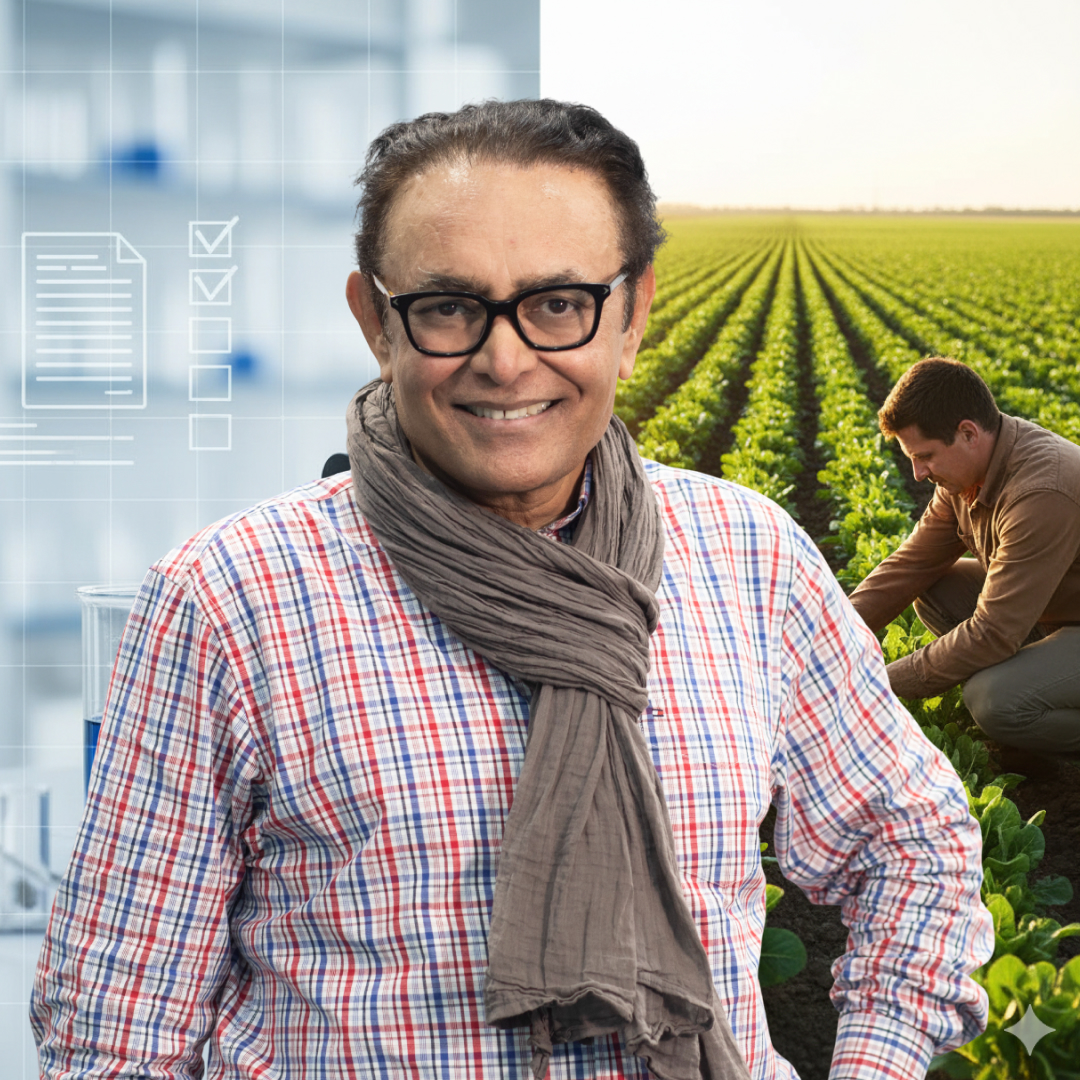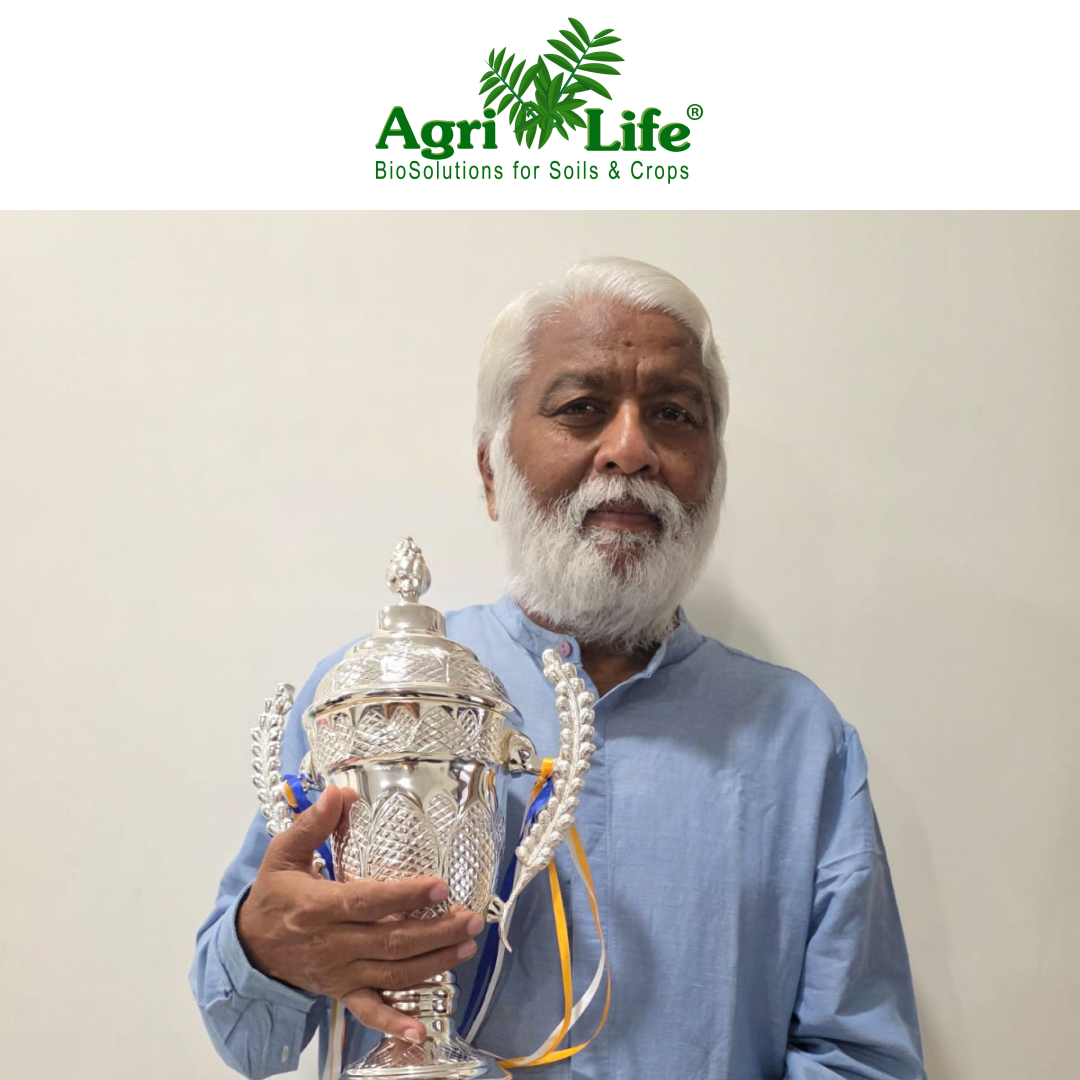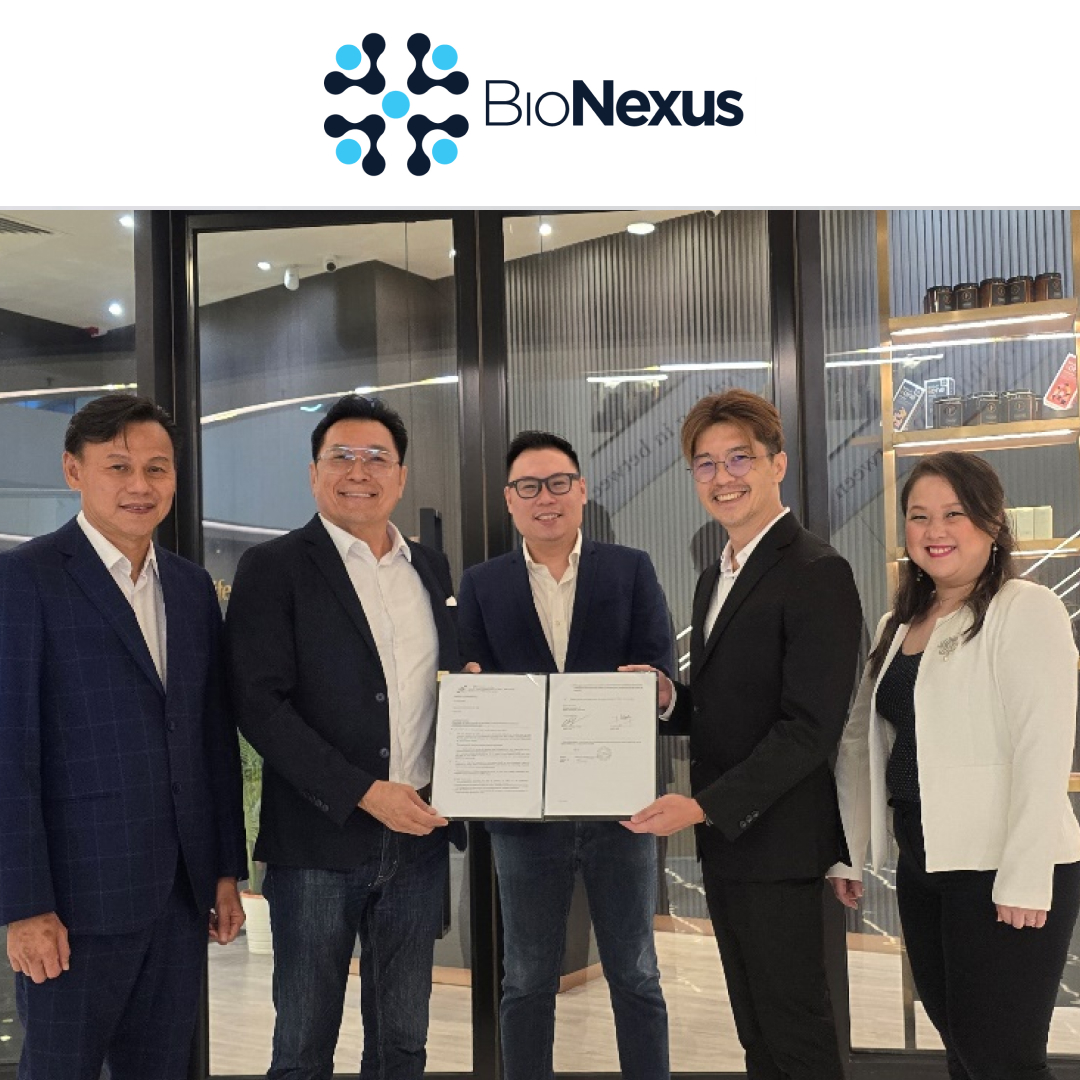
For her significant contribution to the development of biological inputs for agriculture, Brazilian scientist Mariangela Hungria, a researcher at Embrapa Soja, has been named the 2025 laureate of the World Food Prize (WFP), widely regarded as the “Nobel” of agriculture. The announcement was made on the evening of Tuesday, May 13, at the headquarters of the World Food Prize Foundation in the United States, which was created by Peace Nobel Laureate Norman Borlaug, the father of the Green Revolution. The award ceremony will take place on October 23 in Des Moines, Iowa (USA).
The prize annually honors individuals who contribute to improving the quality, quantity, and availability of food globally and is known as the “Nobel” of agriculture and food, as there is no official Nobel category for this field.
“I am immensely happy. I still can’t believe it—it is a great honor, a global recognition. I believe my greatest contribution to ending hunger in the world has been my conviction that food production is essential but must be done sustainably,” said Mariangela Hungria. “It has been a life dedicated to achieving high yields through biologicals, partially or completely replacing chemical fertilizers. This award also recognizes the commitment of Brazilian research towards increasingly sustainable agriculture, strengthening our image abroad.”
For Hungria, for many years, the prevailing concept was that food needed to be produced at any cost to end hunger. However, her work has always focused on sustainable food production. “Today, I see a growing global demand for increased production and quality of food, but with sustainability—reducing soil and water pollution and lowering greenhouse gas emissions,” she emphasized. “My approach is to ‘produce more with less’—less inputs, less water, less land, less human effort, and lower environmental impact,” always moving toward regenerative agriculture, she added.
WFP 2025 Ceremony
The Governor of Iowa, Kim Reynolds, celebrated the award. “Dr. Hungria’s career shows that she is a scientist of great perseverance and vision—traits shared with Dr. Norman Borlaug, the founder of the World Food Prize and father of the Green Revolution,” said Governor Reynolds. “As a pioneering scientist and mother, Dr. Hungria is also an inspiring example to women researchers striving to balance both roles. Her discoveries and developments have helped transform Brazil into a global agricultural powerhouse. The Prize honors those whose courage and innovation change our world.”
The Chair of the WFP Selection Committee, Dr. Gebisa Ejeta, stated: “Dr. Hungria was chosen for her outstanding scientific achievements in biological nitrogen fixation that have transformed agricultural sustainability in South America. Her brilliant scientific work and committed vision to advance sustainable food production using responsible biological inputs and reduced chemical fertilizers earned her global recognition.”
Alexandre Nepomuceno, Head of Embrapa Soja, celebrated the recognition: “It is a great honor to have one of the world’s top agricultural scientists as part of our research team at Embrapa Soja. It’s a privilege to see Mariangela actively contributing to agricultural science, solving complex challenges in soybean cultivation, and delivering practical results that truly impact farmers’ lives. That’s why this recognition from the WFP, equivalent to the Nobel Prize of Agriculture, crowns her trajectory of excellence in agricultural research. Her work is a source of pride for Embrapa and for all of Brazil.”
Silvia Massruhá, President of Embrapa, also celebrated the achievement. “I see this as a dual and deeply meaningful tribute—first, to our colleague, a woman who dedicated her career to science, believing in the power of microorganisms to transform agriculture into a more productive, competitive, and sustainable activity. Second, to our organization, which for 52 years has invested in and believed in these ideals. As the first woman to lead this institution, I am especially moved by this honor that celebrates not only national scientific excellence but also the role of women in building a more innovative and fair country.”
A Life Dedicated to Microbiology
Mariangela is being recognized for her 40-year career dedicated to developing technologies in soil microbiology, enabling farmers to achieve higher yields at lower costs and with reduced environmental impact. Her research has focused on increasing food production and quality through the partial or total replacement of chemical fertilizers with microorganisms capable of biological nitrogen fixation (BNF), phytohormone synthesis, and solubilization of phosphates and potassium-bearing rocks.
Her work includes the inoculation of soybean with nitrogen-fixing bacteria (Bradyrhizobium), further enhanced by co-inoculation with Azospirillum brasilense. In 2024 alone, this technology generated an estimated $25 billion in savings by eliminating the need for nitrogen fertilizers. This figure is based on soybean acreage, production, the cost of urea fertilizer, and nitrogen fertilizer efficiency. Beyond the economic benefit, this technology also prevented the emission of over 230 million tons of CO₂ equivalents into the atmosphere in 2024. Today, soybean inoculation is used on approximately 85% of Brazil’s total soybean area, around 40 million hectares, making it the world’s highest inoculation adoption rate.
In addition to soybeans, she also leads research that led to the recommendation of rhizobial inoculants and co-inoculation for common bean crops, Azospirillum brasilense for corn, wheat, and brachiaria pastures. In 2021, her team launched a technology that allows a 25% reduction in nitrogen top-dressing for corn through A. brasilense inoculation, offering significant economic benefits and positive environmental impact.
About the Prize
The World Food Prize was created by Norman E. Borlaug, winner of the 1970 Nobel Peace Prize for his work in global agriculture, to honor contributions that enhance the world’s food supply. It is an international recognition of those working to improve the quality, quantity, or availability of food globally.
Awarded annually, the WFP was established in 1986 with support from the General Foods Corporation. The laureate receives $500,000 and a sculpture designed by artist Saul Bass. Three other Brazilians have previously received the WFP. In 2006, agronomists Edson Lobato and Alysson Paulinelli shared the award with American A. Colin McClung for their work in developing agriculture in Brazil’s Cerrado. In 2011, former presidents Luiz Inácio Lula da Silva of Brazil and John Kufuor of Ghana were honored for their efforts in fighting hunger as heads of government.
Career Highlights
Mariangela Hungria holds a degree in Agronomic Engineering (Esalq/USP), a Master’s in Soils and Plant Nutrition (Esalq/USP), a Ph.D. in Soil Science (UFRRJ), and postdoctoral fellowships from Cornell University, University of California-Davis, and the University of Seville. She has been a researcher at Embrapa since 1982, initially at Embrapa Agrobiologia (Seropédica, RJ), and since 1991 at Embrapa Soja (Londrina, PR).
She is a Commander of the National Order of Scientific Merit, a full member of the Brazilian Academy of Sciences, the Brazilian Academy of Agronomic Science, and the World Academy of Sciences. She teaches and advises in postgraduate programs in Microbiology and Biotechnology at the State University of Londrina, and is active in the Brazilian Society of Soil Science and the Brazilian Society of Microbiology.
She was part of the coordinating committee of the N2Africa project, funded by the Bill & Melinda Gates Foundation for nitrogen fixation initiatives in Africa, serves on the International Fertilizer Association’s Responsible Nutrition Committee, and collaborates with nearly all countries in South America and the Caribbean, as well as nations in Europe, Australia, the USA, and Canada. In 2020, she was listed among the 100,000 most influential scientists in the world, according to Stanford University (USA). In 2022, and reaffirmed in 2025, she ranked first in Brazil in Plant Science and Agronomy, as published by Research.com.
She has received multiple awards for sustainability in agriculture, including the Frederico Menezes Award, the Lenovo-TWAS Award, awards from the Brazilian Parliamentary Agricultural Front, and the Bunge Foundation. In 2025, she received the Women and Science Award, promoted by CNPq, in partnership with the Ministry of Women, the British Council, and the Development Bank of Latin America and the Caribbean (CAF).
Source – Embrapa







Leave a Reply